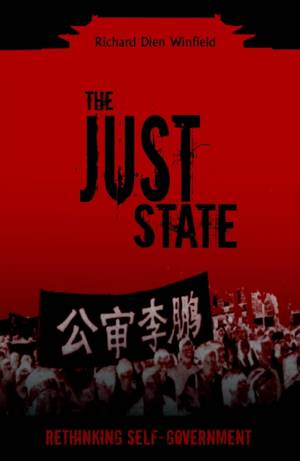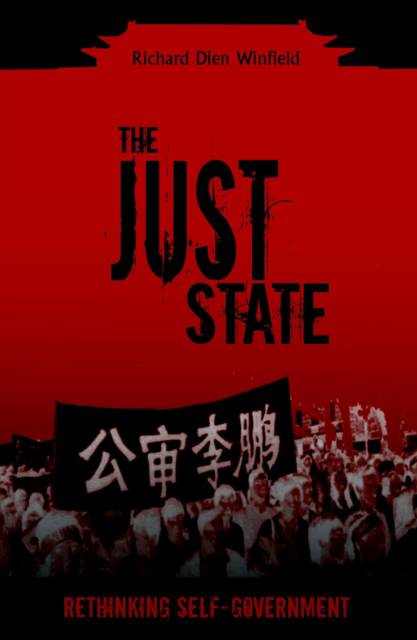
- Afhalen na 1 uur in een winkel met voorraad
- Gratis thuislevering in België vanaf € 30
- Ruim aanbod met 7 miljoen producten
- Afhalen na 1 uur in een winkel met voorraad
- Gratis thuislevering in België vanaf € 30
- Ruim aanbod met 7 miljoen producten
Zoeken
€ 101,95
+ 203 punten
Omschrijving
At a time when the enemies of democracy cannot be dissuaded by appeals to shared values and conventions, nothing is more pressing than a thoroughgoing investigation of what the state should be. Whereas contemporary thinkers have mostly relativized political justice or conceived it as a formal concept lacking institutional detail, The Just State provides a comprehensive theory of self-government, legitimating democracy and concretely conceiving how political institutions should be organized. Carefully and clearly evaluating the fundamental options of normative political theory, philosopher Richard Dien Winfield shows how political self-determination has an exclusive validity independent of any assumptions, enabling democracy to be successfully defended against postmodernists and antimodern fundamentalists. Winfield first examines the household, social, and cultural transformations that enable political emancipation. He then methodically details how self-government should be organized. Uniquely addressing all the central issues embroiling contemporary politics, The Just State determines how political parties should function; resolves controversies between participatory and representative democracy, majoritarian and proportional representation, presidential and parliamentary systems, and federalism and centralization; and examines the ramifications of international relations for political freedom. By tackling all the questions that political philosophers have abandoned to neutral description by political scientists, Winfield reclaims political relevance for normative theory. The Just State will be of key interest to law students, politicians, and citizens at large who wrestle with what a just constitution should mandate, how positive laws should be legislated and enforced, what content they should have, and how their constitutionality should be determined.
Specificaties
Betrokkenen
- Auteur(s):
- Uitgeverij:
Inhoud
- Aantal bladzijden:
- 432
- Taal:
- Engels
Eigenschappen
- Productcode (EAN):
- 9781591023173
- Verschijningsdatum:
- 11/03/2005
- Uitvoering:
- Hardcover
- Formaat:
- Genaaid
- Afmetingen:
- 163 mm x 236 mm
- Gewicht:
- 693 g

Alleen bij Standaard Boekhandel
+ 203 punten op je klantenkaart van Standaard Boekhandel
Beoordelingen
We publiceren alleen reviews die voldoen aan de voorwaarden voor reviews. Bekijk onze voorwaarden voor reviews.








